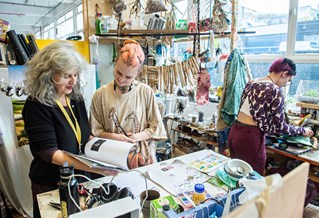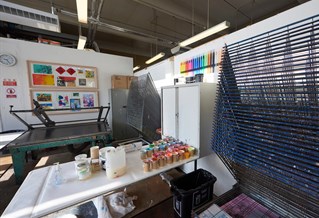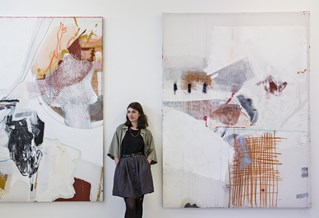
This dynamic course is for you if you want to choose an exploratory, avant-garde artistic path. Our students work in all types of media – from collage to installation, sculpture to performance, text to digital. The Fine Art course at Brighton guides you in imagining, investigating, experimenting and communicating your creative ideas. You will enhance your creativity and develop composition, communication, collaboration and critical skills.

One of the few printmaking degrees in the country, this course lets you explore this exciting medium in all its forms. You will have access to one of the UK’s best-equipped printmaking workshops with facilities for etching, screen print, lithography, relief and large format digital print, letter press and bookbinding and wet-based photography. Links with arts communities provide opportunities for creative engagement locally.

If you adore painting and want to push your practice and challenge yourself, this course is for you. Taught by an experienced team of acclaimed artists, the degree is well known and highly respected. One of the few painting degrees in the UK, Fine Art Painting at Brighton is studio-based and centred on vital hands-on work, learning by doing. Many of our graduates exhibit their work globally and have made significant contributions to fine art and related cultural spheres.